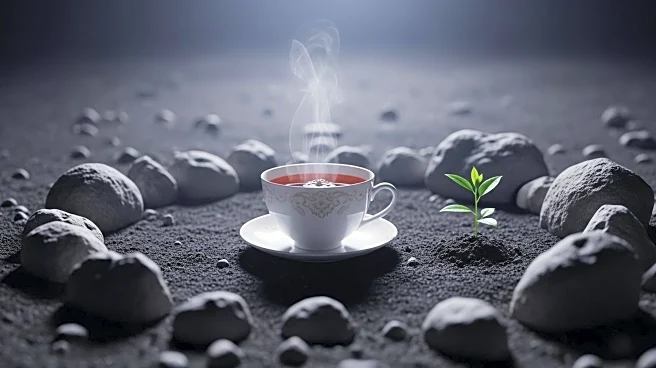What's Happening?
Researchers from the University of Kent have successfully grown tea plants in soil designed to mimic lunar conditions. The study, led by Professor Nigel Mason and Dr. Sara Lopez-Gomollon, aimed to explore sustainable agriculture for future lunar missions. Tea saplings were exposed to conditions replicating those on the Moon, resulting in successful growth. The findings were presented at the Space Agriculture Workshop in Slovakia, highlighting the potential for growing crops in extraterrestrial environments. The research also offers insights into plant survival in harsh conditions on Earth.
Why It's Important?
The ability to grow crops in lunar soil represents a significant step forward in space agriculture, potentially supporting long-term human habitation on the Moon. This research not only advances scientific understanding of plant growth in extraterrestrial environments but also offers solutions for agriculture on Earth, where climate change and soil degradation pose challenges. By developing methods to grow crops in harsh conditions, scientists can improve food security and sustainability both in space and on our planet.
What's Next?
The research team plans to further study the physiology of plants grown in lunar conditions to enhance growth and apply findings to other crops. This could lead to broader applications in space agriculture, supporting future missions to the Moon and Mars. Additionally, the insights gained from this study may inform agricultural practices on Earth, particularly in regions facing environmental stress. Collaboration with industry partners and continued research will be crucial to advancing these efforts.










